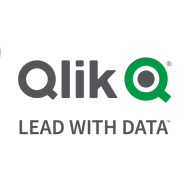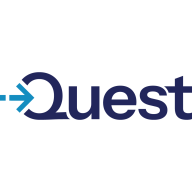

SharePlex and Qlik Replicate compete in the database replication and integration market. SharePlex has an edge in pricing and support, while Qlik Replicate excels with its comprehensive feature set that justifies its higher pricing.
Features: SharePlex provides real-time replication, stability in Oracle environments, and user-friendly operation. Qlik Replicate offers a wide platform array, advanced data transformation capabilities, and efficient data loading into multiple endpoints.
Room for Improvement: SharePlex could enhance its platform support and add more advanced transformation features. Simplifying its configuration processes may improve its user experience. On the other hand, Qlik Replicate's complexity might be reduced for easier deployment, and improving AI capabilities could further strengthen its offering. Better integration with external analytics tools can also be beneficial for Qlik Replicate.
Ease of Deployment and Customer Service: SharePlex ensures straightforward deployment with minimal downtime, supported by reliable customer service. Qlik Replicate offers flexible deployment models, with comprehensive documentation and responsive customer support, assisting users through setup complexities.
Pricing and ROI: SharePlex is cost-effective with a solid ROI for budget-conscious businesses. In contrast, Qlik Replicate's higher cost is offset by its rich functionality, providing strong long-term ROI for businesses capable of leveraging its extensive features.
| Product | Market Share (%) |
|---|---|
| Qlik Replicate | 2.1% |
| SharePlex | 0.7% |
| Other | 97.2% |

| Company Size | Count |
|---|---|
| Small Business | 9 |
| Large Enterprise | 10 |
Qlik Replicate is a data replication solution for replicating data from one source database to another for business intelligence software. It offers data manipulation and transformations, replication without impacting source databases, and ease of use without needing ETL. The solution is stable and user-friendly, with detailed logging and support.
Qlik Replicate has improved the organization by allowing each team to replicate their data into a single-source data location. The most important feature of Qlik Replicate is its ability to replicate and update records without needing a programmer.
SharePlex delivers robust database replication and migration capabilities, emphasizing performance, synchronization, and data integrity management. Supporting high availability and real-time data syncing, it serves organizations handling vast transaction volumes, especially in IoT data processing.
SharePlex offers reliable data transfer and efficient multi-target replication. Its features like Compare and Repair utilities assist in maintaining data consistency. With PEP fostering scalability for large transactions, it caters to businesses aiming to cut down migration windows and minimize outages. Users employ SharePlex in real-time syncing and failover scenarios across data centers, crucial for handling extensive transaction data during migrations or upgrades.
What are SharePlex's key features?Organizations in sectors like finance and telecommunications implement SharePlex to maintain uninterrupted operations and ensure quick recovery times. By facilitating database migrations to cloud platforms like AWS, they achieve reduced downtime and enhanced operational efficiency, catering to the rigorous demands of data-driven industries.
We monitor all Data Integration reviews to prevent fraudulent reviews and keep review quality high. We do not post reviews by company employees or direct competitors. We validate each review for authenticity via cross-reference with LinkedIn, and personal follow-up with the reviewer when necessary.